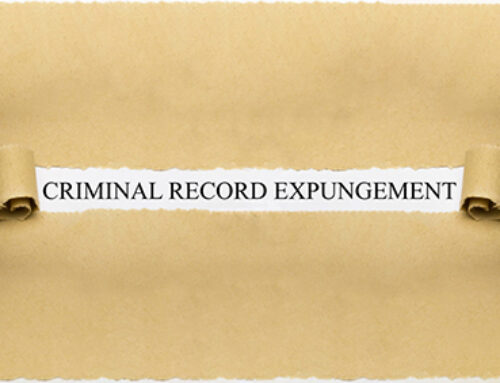Criminal law is the body of law that relates to so-called “public wrongs.” Criminal law does not concern itself with disputes between individuals but also to offenses against the public order.
OVERVIEW
The federal government, along with cities and states, define and prosecute people who commit crimes that range from minor traffic violations to serious, violent offenses, like rape or murder.
People who are charged with a crime are called defendants, and they are represented by criminal defense attorneys. The governmental body that pursues the charges against the defendant is represented by a lawyer called a prosecutor. If you find yourself charged with a crime, you should contact an experienced criminal defense attorney, to protect your rights now and in the future.
Misdemeanor Criminal Defense
Crimes that are regarded as less serious are referred to as misdemeanors. A misdemeanor usually is punishable by a fine or by incarceration in a local jail for a period of less than one year. Prosecutors typically do not convene a grand jury to investigate or issue indictments for misdemeanor charges, although the same conduct may give rise to both felony and misdemeanor charges. Misdemeanors are usually charged by a written complaint, or “information.” In some states, poor defendants are not entitled to a court-appointed attorney when charged only with a misdemeanor. The charges may be considered minor, but being accused of a misdemeanor — not to mention being convicted of one — can cause a major disruption in the life of an accused. As in any criminal case, it is essential that a defendant in a misdemeanor prosecution have zealous representation backing him or her up. A person accused of a misdemeanor should seek the help of a criminal defense attorney.
Felony Defense
The most serious types of crimes are referred to as felonies. The usual definition is that a felony is any crime that may be punished by more than a year’s imprisonment or death. A crime that has a maximum sentence of a monetary fine or a short period of confinement in the local jail is not a felony. A statute may not specifically label an offense as a felony, but the punishment defines the offense as a felony. State criminal codes may call a crime an “aggravated” or a “gross” misdemeanor, but the offense calls for a sentence of more than one year in the state penal system. Those offenses will be treated as felonies. When crimes charged are more serious, the need for a criminal defense attorney to help a defendant through the process becomes even greater.
What to Do if You Are Falsely Accused of a Crime?
Believe it or not, many people who are convicted of a crime and end up in prison were falsely accused. Although the American criminal justice system works in most cases, not all juries get things right and the consequences can be tragic. An innocent person pays the price for something he or she did not do, while the guilty party roams free. The best way to avoid such an unjust result and ensure the proper outcome when faced with criminal accusations is to immediately seek counsel from a criminal defense attorney. A defense lawyer at our firm can help you to navigate through the complex criminal law procedures.
Misdemeanor Criminal Defense
Crimes that are regarded as less serious are referred to as misdemeanors. A misdemeanor usually is punishable by a fine or by incarceration in a local jail for a period of less than one year. Prosecutors typically do not convene a grand jury to investigate or issue indictments for misdemeanor charges, although the same conduct may give rise to both felony and misdemeanor charges. Misdemeanors are usually charged by a written complaint, or “information.” In some states, poor defendants are not entitled to a court-appointed attorney when charged only with a misdemeanor. The charges may be considered minor, but being accused of a misdemeanor — not to mention being convicted of one — can cause a major disruption in the life of an accused. As in any criminal case, it is essential that a defendant in a misdemeanor prosecution have zealous representation backing him or her up. A person accused of a misdemeanor should seek the help of a criminal defense attorney.
Finding a Job After a Criminal Conviction
Employers have in recent years become increasingly concerned about knowing whether an applicant has a criminal record. Part of this concern stems from large jury verdicts that have been rendered against employers for negligently hiring a person with a criminal record who ultimately harms others, and the employer is held responsible. As a result, some companies conduct pre-employment background checks for criminal records and choose not to hire former convicts. Yet without the opportunity for future employment, how can those with a criminal record be afforded a chance to make a fresh start and become contributing members of society? These and other questions are addressed below and can be more fully explained by an attorney at our firm who is knowledgeable in criminal defense law.





